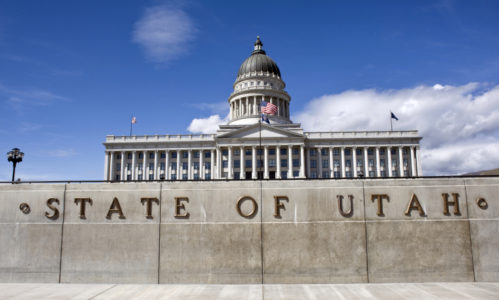SALT LAKE CITY (AP) — Utah passed sweeping changes to a voter-approved Medicaid expansion Monday, cutting the number of people covered nearly in half and adding work requirements that the Trump administration is expected to approve.
Republican Gov. Gary Herbert signed the plan hours after it cleared a final vote in the Republican-led Legislature, calling it both “humane and sustainable.”
It’s drawn vocal protest from advocates who say the changes go further than any of the four other conservative-leaning states where voters expanded Medicaid after state lawmakers refused.
“This is a dark day for democracy in Utah,” said Andrew Roberts, a spokesman for the group Utah Decides. “State legislators turned their backs on voters and on families in need.”
Lawmakers’ plan would extend Medicaid coverage to an additional 80,000 people, just over half of those that would have been covered under the ballot measure that voters passed in November, Republican Sen. Dan Hemmert said.
An additional 70,000 people can instead buy heavily subsidized insurance on the federal health care marketplace created under President Barack Obama’s health care law, he said.
“I think we are doing the long-term responsible thing,” said Republican Sen. Allen Christensen, who sponsored the changes that easily passed the GOP-dominated Legislature, largely along party lines.
He said changes are needed to control future costs. Voters also approved a sales tax increase to pay for the expansion, but a subsequent state analysis found it would fall $10 million short by 2021.
Advocates argue there’s plenty of money to roll out the program, and if it falls short, adjustments could be made in the future.
The ballot measure would have fully expanded Medicaid to about 150,000 people making less than $17,000 a year.
The legislation scales that back to people earning just over $12,000 a year and adds spending caps and work requirements. Utah’s plan hinges on waivers from the federal government to scale back the expansion, add work requirements and make other changes. It also includes millions of dollars to keep an April 1 rollout date.
Lawmakers say they have been assured the Trump administration will approve the waivers, but if they fall through, the measure would revert back to much of what the voters originally approved.













